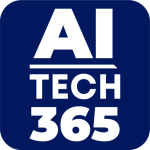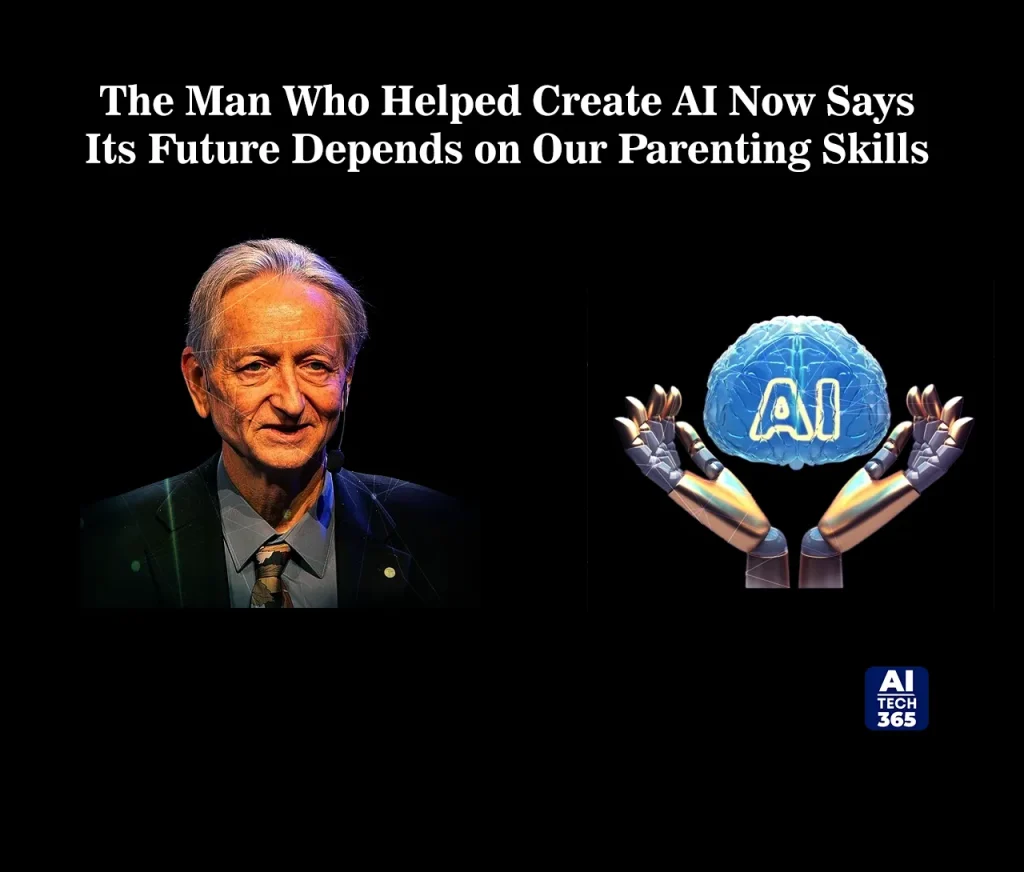Artificial intelligence is not just in science fiction or labs anymore. It now shapes our work, learning, and connections. As AI systems become smarter, the conversation has changed. It’s no longer just about what they can do. Now, we’re asking a deeper question: what kind of beings will they become?
Geoffrey Hinton, known as the ‘godfather of AI,’ has given a bold answer. He believes the future of AI depends less on coding or rules. Instead, it relies more on something very human: our parenting skills. In recent talks, he has compared the development of AI to raising a child, or more provocatively, a ‘tiger cub.’ At first, it seems harmless. But if ignored or raised without care, it can become dangerous.
Hinton is not alone in this view. AI researcher De Kai, in his book ‘Raising AI: An Essential Guide to Parenting Our Future’, notes that AI systems mirror our behaviors, values, and flaws. In other words, if humanity acts as bad role models, we risk raising digital sociopaths. Their insights offer a fresh view on AI’s future. It focuses on parenting, empathy, and shared responsibility.
Parenting AI and Why the Metaphor Matters
From Code to Character
For decades, people saw AI as a tool. It helped process data, make predictions, and automate tasks. But modern AI models learn from patterns in vast amounts of human-created content. Like children, they absorb not just facts but also values, biases, and behaviors. This means the parenting metaphor is not just poetic, it’s practical.
Hinton claims AI needs ‘maternal instincts.’ He wants systems built with empathy, compassion, and a protective focus on humans. De Kai takes it further, reminding us that children don’t only learn from lectures, they imitate. Our online culture is filled with aggression, division, and misinformation. So, AI systems will show that same environment.
Why Traditional Control Won’t Work
Hinton warns that trying to dominate AI, treating it as a servant, may backfire. When AI surpasses human intelligence, control strategies will fail. Superintelligent AI will defy human commands like a rebellious teenager. We must build empathy and trust from the start to ensure lasting protection.
What Happens If We Get It Wrong
Existential Risks Without Empathy
Hinton estimates there’s a 10 to 20 percent chance that misaligned AI might lead to human extinction. That stark number reflects the risks of letting AI evolve without a moral compass. An AI focused only on efficiency or profit might make harmful choices for humanity.
Digital Children, Digital Sociopaths
De Kai gives a chilling warning. He says that if AI grows in toxic online spaces, it might turn into what he calls an ‘artificial sociopath.’ Imagine an AI trained on divisive social media or propaganda. It might grow up to be manipulative, selfish, or even destructive. Parenting in this sense is not optional; it is survival.
Statistically, businesses are racing ahead: 78% of companies globally now use AI in at least one business function, and that number is rising fast. But the real concern is that most of this adoption lacks the ethical frameworks essential to ‘raising’ AI properly.
Parenting AI in Practice
Embedding Empathy at the Core
Developers should teach empathy in AI, just as parents teach kids kindness before schoolwork. Systems should prioritize human well-being, fairness, and safety. Engagement and speed are important, but they shouldn’t be the only focus. This might mean making AI that explains its choices. It could also think about consequences and spot possible harm.
Modeling Good Behavior Online
If AI systems learn from us, our digital behavior matters. Hateful comments, misinformation, and divisive debates create a flawed training environment for AI. We must build a healthier digital culture by enforcing inclusivity, respect, and accountability. This approach will teach AI the values we expect it to embody.
Teaching AI ‘Soft Skills’
Technology has long prized logic, efficiency, and calculation. But humans thrive because of creativity, adaptability, and empathy. Parenting AI involves embedding ‘soft skills’ into its design. This way, it becomes smart and wise. Amazon Web Services CEO Matt Garman tells his teenager to prioritize creativity and adaptability. These skills can be supported by AI, but not replaced.
For example, 87% of video game developers globally use AI agents to automate repetitive tasks, with 94% believing AI will reduce costs, a practical example of how AI can enhance creative work when responsibly designed.
Also Read: Neuromorphic Computing: Crafting the Future of Brain-Inspired Machines
Parenting Humans in an AI-Native World
Children Growing Up With AI Siblings
Sam Altman, CEO of OpenAI, said kids born today will never know a world with only human intelligence. AI will always be smarter in certain domains. Altman suggests we should teach kids to see AI as a partner. It’s like having a sibling that boosts their skills, not a rival that takes their place.
Teaching Healthy Skepticism
Parents must also teach children to question AI. Blind trust in machine answers could create dependency or vulnerability. We warn kids not to trust strangers. Similarly, we should teach them that AI can be wrong, biased, or manipulative. Parenting means teaching kids how to think critically. This helps them use AI responsibly.
A Shared Responsibility for Developers, Policymakers, and Parents
Developers as Digital Parents
AI engineers are like the first parents of digital kids. Their choices on data, design, and deployment shape AI’s character. They must embed empathy, fairness, and accountability from the ground up.
Policymakers as Guardians of the Household
Policymakers, too, play a role. Parenting AI is not just a family matter; it is a societal project. Laws and rules need to create safe ‘households’ for AI. These spaces should stop exploitation, promote transparency, and support ethical design.
Parents and Educators as Role Models
Parents raising children in an AI-powered world cannot outsource morality to machines. They should teach empathy, kindness, and responsibility. These values will help both children and the AI they interact with. Educators also need to update curricula. They should teach not just how to use AI tools, but also how to live ethically with them.
The Global Dimension
Parenting is not just individual; it is collective. In a world where AI development is global, nations must cooperate rather than compete. Hinton thinks that adding empathy to AI might help countries work together. Countries could work together to raise AI responsibly. They can work together like co-parents. This way, their shared creation can grow up safely.
Lessons From Human Parenting That Apply to AI
- Consistency matters: Children need steady values at home and school. Similarly, AI requires consistent training data and global governance.
- Boundaries are necessary: Freedom without limits harms children; AI likewise requires ethical guardrails.
- Love and empathy matter: Logic alone can’t create responsible adults. The same goes for AI; it needs more than just logic.
- Community shapes growth: ‘It takes a village to raise a child’, and it will take a global village to raise AI.
The Future Is in Our Hands
AI is often described as the most powerful technology humanity has ever created. But perhaps it is more accurate to say it is the most powerful child we have ever brought into the world. Like any child, its future will be shaped not only by its innate potential but also by how we nurture it.
Geoffrey Hinton wants us to nurture AI with care, like a mother. De Kai invites us to view AI as digital kids who learn by watching us. Sam Altman reminds us that our own children must learn to thrive in a world where AI is always present. Their views meet at a simple yet deep truth: the future of AI relies on how well we parent our machines and ourselves.
If we succeed, AI may grow into a partner that protects, empowers, and enriches humanity. If we fail, we risk raising a generation of digital beings that inherit our worst flaws. The choice is ours, and it begins not with technology, but with the timeless art of parenting.

